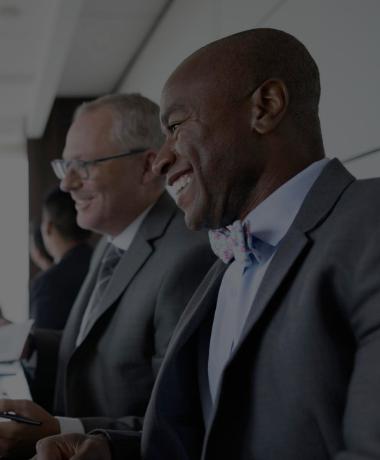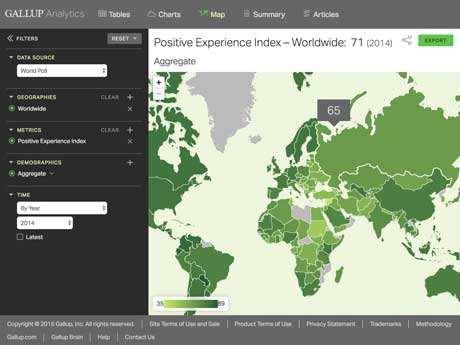Story Highlights
- The "how" of what you communicate is often more important than the "what"
- Many leaders enter the pandemic with a trust deficit in their company
- Workers most at risk of COVID-19 effects are often nearest your customers
Gallup recently gathered the COVID-19 strategies and policies from the CHROs of 100 of the world's largest organizations. They offered important insights on mission-critical elements -- most of which are rational and pragmatic in nature.
You need these pragmatic elements to lead. You need them to keep operations going, period -- yet, they are not sufficient to lead well. To be an effective leader during this time, you must remember that humans experience life about 30% rationally and 70% emotionally.
Right now, those emotions tend toward fear and uncertainty. Six in 10 Americans are "very" (26%) or "somewhat worried" (34%) that they or someone in their family will be exposed to the virus, up from 36% very or somewhat worried in Gallup's initial Feb. 3-16 poll. Very worried people are not productive employees. So although what you communicate is important, how you do it and how it makes your people feel is crucial for effective leadership.
And Gallup's research reveals that the feelings followers need most are trust, compassion, stability and hope.
Trust: Be predictable in an unpredictable time.
In this environment, employees are not only looking for honesty and clarity -- they're also watching intently for behavioral predictability.
Leaders don't need to predict the future, but they must be predictable now and in the future. It's hard to trust an erratic leader.
Leaders need a reality check here. Most workers didn't trust their leadership before the COVID-19 pandemic -- Gallup research shows that just one in three employees worldwide strongly agree that they trust the leadership of their organization. And just 13% of U.S. employees strongly agree that their company's leadership communicates effectively -- so you may be starting from a trust deficit.
Most companies are prioritizing employee and customer safety, which is absolutely necessary for trust. But employees are wondering how a health and economic crisis will affect their jobs and how you're making decisions for the future -- the principles you're using, how they conform to your organization's purpose, the outcomes you're aiming for. Make firm commitments in critical areas wherever you can, such as, "We will ensure wage stability for all employees for the next three months."
Don't shy away from difficult topics, like layoffs or pay. Clearly lay out the scenarios and the decision criteria. Just as weather sirens warn us when we should be on high alert, companies should do the same. Otherwise, employees will live in constant anxiety.
Compassion: Say it out loud, and back it up with policy.
Gallup research shows, based on tens of millions of data points, that if people don't have close friendships on the job and a manager who really cares about them personally, there's almost no chance that they'll be engaged in their work.
If ever there was a time to show care, this is it. Your people are juggling new responsibilities, fears and problems, and they need to hear their managers and leaders say out loud that they understand, that the company is behind them, that you'll get through this new situation together. They need to feel genuine compassion.
That's not to say compassion is entirely verbal -- it can be boldly practiced through policy decisions as well. The commitments, support and sacrifices you make to help keep employees, customers and communities whole are a reflection and demonstration of your priorities. Put bluntly, verbal compassion without policy compassion is insulting. Real compassion changes things -- and when the pandemic has passed, how you treated people will be remembered most.
Stability: Provide psychological safety and avoid tunnel vision.
There are two elements to stability, the practical and the psychological. Making sure employees have the materials and equipment they need to work under rapidly changing circumstances -- such as technology, access and communication -- provides practical stability.
But the core of stability is psychological security, particularly the need to know where a company is headed and that one's job is secure. This is why you must clearly define and communicate your decision-making principles -- especially regarding employment and pay.
People need some sense of normalcy too. Regularly communicate your progress and accomplishments during this difficult time so that it doesn't feel like the world has completely stopped. Highlight constancy where you can find it to prevent tunnel vision -- for example, the aim to serve your customers likely won't change, although how you deliver it might.
Hope: It's your most precious asset during turmoil.
There is an aspirational quality to hope that inspires commitment, as well as a motivational aspect that prompts performance. Hope sits on the foundation of trust and stability and pulls people forward and invites them to participate in creating a future that's better than the present.
So, view hope as precious capital. Hopeful workers are more resilient, innovative and agile, better able to plan ahead and navigate obstacles -- all very valuable assets. Tell people what you want to achieve this week, this month, this quarter, and why you're sure those goals can be reached. That gives people reason to hope and motivation to dig deep.
Change the lens.
Amid the chaos and uncertainty of a global pandemic and a bear market, when everyone is looking to you for answers you can't give right now, know one thing for sure: You don't have to have all the answers. But you do need to know how to meet your followers' four basic needs every time you plan, communicate and act.
Focusing on your employees' emotional needs will help get them through the tough weeks ahead. But it will also help you secure your company's future.
The employees most vulnerable to the ripple effects of COVID-19 are often the ones closest to your customers.
With every decision, communication and action, ensure you are providing trust, compassion, stability and hope. Their eyes are on you -- will you rise to the challenge?
Make informed decisions during COVID-19:
- Get Gallup's latest news and numbers on the COVID-19 pandemic.
- Partner with Gallup to get more analytics and advice on managing performance during a crisis.






